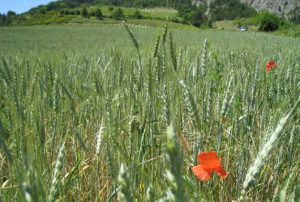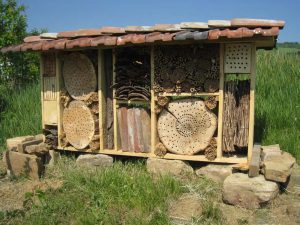The course in the first autumn semester :
‘Agroecology: Action learning in farming and food systems’ is set up according to two important system levels: the farming system and the food system.  Three main themes will be: Production & Ecology & People The course consists of experience with real-life cases, lectures, literature seminars, workshops and other activities. Depending on the nature of the activities, they are carried out individually, in groups or in plenary. For the most part, at least one day each week will be kept free of plenary class activity. The two first weeks consist of introductory topics and preparation for a subsequent involvement in real-life cases. Then the courses are thematically and practically structured according to a stepwise process of participatory systems inquiry. The last period consists of oral presentations by students, writing of reports, evaluations and an oral exam. NMBU programme : here !
Three main themes will be: Production & Ecology & People The course consists of experience with real-life cases, lectures, literature seminars, workshops and other activities. Depending on the nature of the activities, they are carried out individually, in groups or in plenary. For the most part, at least one day each week will be kept free of plenary class activity. The two first weeks consist of introductory topics and preparation for a subsequent involvement in real-life cases. Then the courses are thematically and practically structured according to a stepwise process of participatory systems inquiry. The last period consists of oral presentations by students, writing of reports, evaluations and an oral exam. NMBU programme : here !
Case projects
The basis for experiential learning in the course is work in groups of about five students in open-ended cases where the local communities participate in a government-supported project to foster organic farming and food systems locally. The case project encompasses about half of the workload. The students will write for their clients a group report containing description, analysis and suggestions for improving the situation. The students will also write an individual learner document, which is supposed to contain description and reflection on the experiences from the casework and their links to relevant theory. The experiences to be dealt with are those related to the structure and functioning of the farming and food systems (‘content’) as well as those related to the methodology of participatory systems inquiry and action learning (‘process’). 
Lectures, literature seminars and workshops
Lectures will be given to provide context and methodology for the casework and to address specific topics on demand as identified by the students. Lectures usually last for about one or two hours. They will often be followed by individual and group work (one to two hours), including a plenary discussion concerning key questions and the relevance of the lecture for the case project. The classroom sessions will normally take place between 9 a.m. and 4 p.m. There will also be a number of student-led literature seminars focused on relevant theory on farming and food systems and on methodology for systems inquiry. In teacher-facilitated workshops in class, the student groups will practice application of selected concepts and methods in their casework.
Plenary reflections
Plenary reflection sessions will take place every week. The main purpose is to link experiences to relevant theory and to enhance group and individual learning. U1. Agroecology: Action learning in farming and food systems
Course contents:
The course consists of two interlinked parts: a group-based real-life project work and an individual reflection on the project work. The real-life project work includes description, analysis and redesign of farming and food systems. Lectures and seminars deal with agroecology, ecological (organic) agriculture, local and global food systems, systems thinking, learning, action research methodology, interview techniques, visionary thinking, creative problem solving, group dynamics, facilitation, agroecosystems structure and functioning from farm to global scales, sustainability in production, environmental, economic and social perspectives, ecological principles of farming and food systems design, systems ecology, food distribution, consumer issues on food, and food security. Students write one group report for their farmer clients and one for their food system clients. They also write an individual report where they reflect on agroecological issues of the project work as well as their own learning while preparing the group reports.
Learning outcomes:
After completing the course, the students should know how to: – Describe and analyse farming and food systems, – link theoretical knowledge and concrete action, – acquire knowledge about their own learning. Further, the students should acquire: – Knowledge of structure and functioning of conventional and alternative (e.g., organic and local) farming and food systems, – knowledge of links between disciplinary (sub-system) knowledge and systemic (holistic) approaches, – experience with methods for systems analysis and improvement, including assessment of sustainability within a methodology of participatory action research, – the ability to handle complexity and change, – the ability to link theory to real-life situations, – the ability to communicate and facilitate, – the ability to learn autonomously and life long, – experience in dealing with attitudes as part of the agroecosystem and the learning community. Through real-life case studies with focus on change processes, attitudes of both students and actors in the farming and food systems will be made explicit. The students will learn how to deal critically and constructively with attitudes and value-based choices as important system elements. Desirable attitudes of the students: open-minded, critical, spirited, determined, approachable, exploring and communicative.
